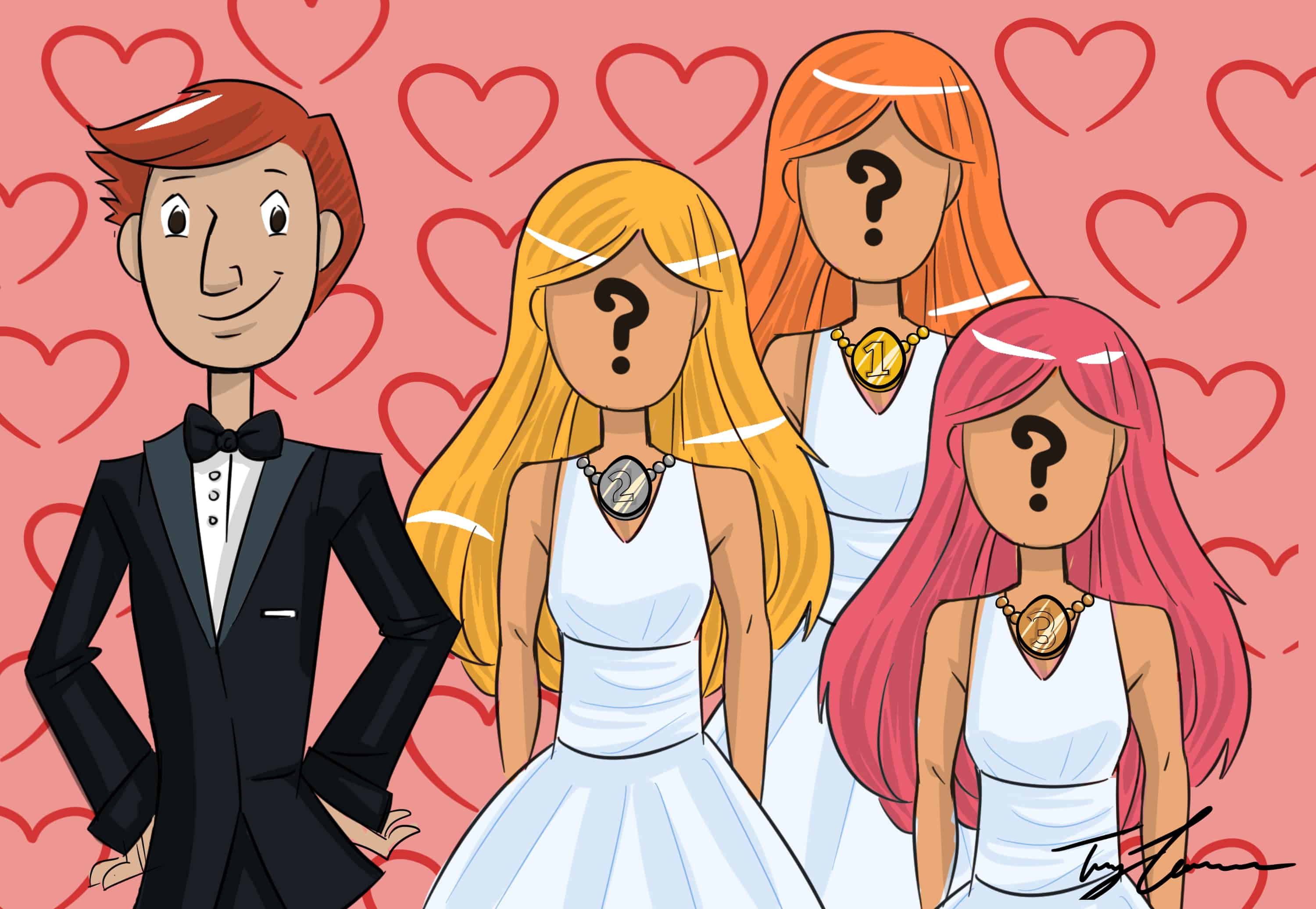In December, ESPN announced that it would join forces with ABC for a new online fantasy league game, based on the twenty-first season of the network’s reality television mainstay, The Bachelor.
A typical elimination style reality TV competition, each season of The Bachelor begins with a group of 25 to 30 women — or men in the case of The Bachelorette — vying for the affections of each season’s star. Each week, the star decides who will remain in the competition by presenting them with a rose.
After finishing as runner-up on The Bachelorette (twice!) and appearing this past summer on Bachelor in Paradise, alumnus Nick Viall has returned as the latest Bachelor.
The way both dating and sports competitions are structured makes it easy to create fantasy league sweepstakes and contests. Traditionally, fantasy sports are online games where each player assembles a team of professional athletes, who compete virtually based on their real-life performance.
Each season of The Bachelor is akin to a sports match, where the individual contestants vying to be chosen and proposed to are the teams, and the starring Bachelor or Bachelorette is the prize. Similar to the playoff process in professional sports, with each passing episode, another contestant is eliminated.
However, ESPN is somewhat late to the party. Since its beginnings, The Bachelor has spawned many informal fantasy league sweepstakes among family and friends, across living rooms and Internet forums alike. Longtime Bachelor fans will find ESPN’s announcement unoriginal, or at the very least, overdue.
The Bachelor first premiered in September 2002, and while trends show that reality television shows usually die out as their impressionable young viewers grow older and wiser, The Bachelor franchise has only grown, giving rise to several spin-offs, including The Bachelorette and Bachelor in Paradise. The show’s burgeoning popularity has certainly not come without critique.
Reality TV dating shows like The Bachelor have been criticized for cheapening and commodifying love and dating. Imagine being a contestant on one of these shows, constantly having to watch the man or woman you’d like to spend the rest of your life with dating and rubbing up on other people.
If that wasn’t enough, you’re forced through frivolous games and activities to prove that you’re worth a 30-minute date. People argue that basing a game or contest on an emotion as pure as love is destroying society, and that these shows are setting us up with unrealistic expectations that we project onto our own dating lives.
The truth is that the commodification of love and dating is at least as old as the commercialization of Valentine’s Day. It’s only natural that in our generation, our contemporary media would jump at the opportunity to further capitalize on this commodification. No matter if it’s derived from a television show like The Bachelor, or dating apps like OKCupid and Tinder, money always speaks the same language. In fact, much like television, IAC, the company that owns both OkCupid and Tinder, is for-profit, receiving revenue from subscribers and paid advertisements.
So is Nick Viall really a crazy masochist for appearing on the franchise for the fourth time looking for love? While I wouldn’t go that far, he is certainly a product of the franchise that has polarized fans and kept The Bachelor in the news.
The Bachelor franchise is easy to sell and consume because it’s based on an emotion that we all crave and are fascinated by: love. The idea of presenting a star with many contestants to begin with may be so that we, the viewers, might see ourselves reflected among them.
All of us daydream about getting the guy or the girl at the end. We might look down upon the sexual debauchery and hedonism promulgated on The Bachelor, but we keep watching. It’s a delightful, gratifying trainwreck from which we just can’t look away.


